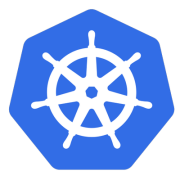Container Management solutions optimize the deployment, management, and scaling of applications using containers. They streamline processes, ensuring efficiency and flexibility in IT operations.
As IT architectures evolve, organizations increasingly turn to Container Management solutions to improve application deployment speed and operational efficiency. These solutions provide the framework to manage containerized applications, which are lightweight and portable across different environments. More businesses are adopting containerized solutions to enhance scalability while reducing infrastructure costs.
What features should you look for in Container Management solutions?In industries like finance and healthcare, Container Management solutions are implemented to handle sensitive data securely while maintaining compliance. E-commerce platforms use these solutions for scaling applications during peak demand, ensuring customer satisfaction and increased sales.
Container Management helps organizations efficiently manage application lifecycles, reduce operational complexity, and achieve faster deployment times, significantly improving overall IT agility.
| Product | Market Share (%) |
|---|---|
| Red Hat OpenShift Container Platform | 19.7% |
| VMware Tanzu Platform | 12.1% |
| Amazon EKS | 11.8% |
| Other | 56.400000000000006% |









![Nutanix Kubernetes Engine NKE [EOL] Logo](https://images.peerspot.com/image/upload/c_scale,dpr_3.0,f_auto,q_100,w_60/haosg86qw426gprr0w60eovzmyaw.png)


























The purpose of container management is so that systems can work more efficiently. At some point the number of containers becomes too vast for an IT team to handle, and a container management system becomes imperative.
Effective container management helps keep environments more secure and also makes it more flexible and easier to develop new apps.
Container management also offers automation enabling developers to keep up with rapid changes.
When selecting a Container Management solution, consider the specific needs of your organization. Evaluate integration capabilities with existing infrastructure, ease of use, scalability, and security features. Research popular options like Kubernetes, Docker Swarm, and OpenShift to determine which aligns best with your operational goals and technological environment.
What are best practices for securing Containers?Securing Containers involves several key practices. Start by using trusted images and regularly updating them. Implement precise access controls and roles. Monitor container activity continuously with security tools and logs. Use namespaces and isolation mechanisms to segregate sensitive data. By adhering to these principles, you ensure a robust security posture.
How can you optimize Container performance?Optimizing Container performance requires effective resource management. Allocate CPU and memory resources based on application needs. Use lightweight base images to reduce overhead. Implement autoscaling to manage demand fluctuations. Regularly monitor performance using tools like Prometheus or Grafana to identify and resolve bottlenecks promptly.
What challenges does Container orchestration address?Container orchestration addresses several challenges including service discovery, load balancing, and scaling in response to workload demand. It automates the deployment and management of Containers across clusters, ensuring high availability and resource efficiency. This orchestration minimizes downtime and provides a consistent deployment environment.
Why is Container Management critical for DevOps?Container Management is essential for DevOps as it facilitates seamless integration and delivery processes. It allows for consistent and portable application packaging, enabling teams to develop and deploy across different environments without compatibility issues. This supports continuous integration and continuous deployment (CI/CD) pipelines, enhancing productivity and speeding up release cycles.